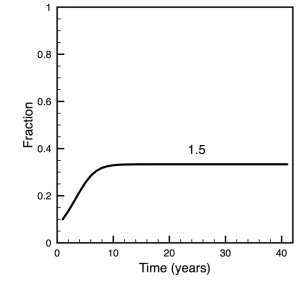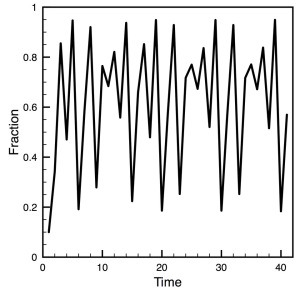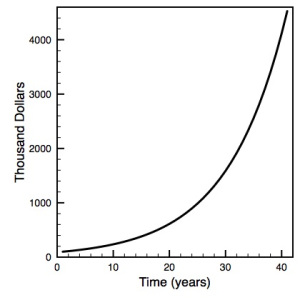From Geoff Davies The point of a theory or model is to provide a useful guide to understanding the world. People like Paul Krugman are fond of claiming simple equilibrium models provide a useful first cut or first approximation to understanding. Others put their faith in more elaborate equilibrium models. But do equilibrium models, simple or elaborate, offer any useful guidance to actual economies, or are they perhaps radically misleading? Is this a useful guide to this? Or this? The difference between these examples is feedback. Feedback is powerful. It can generate exponential growth, which can take over the world (or try to). In special circumstances, feedback can generate a steady state, an equilibrium. Some living systems begin their life undergoing exponential growth but then
Topics:
Editor considers the following as important: Uncategorized
This could be interesting, too:
tom writes The Ukraine war and Europe’s deepening march of folly
Stavros Mavroudeas writes CfP of Marxist Macroeconomic Modelling workgroup – 18th WAPE Forum, Istanbul August 6-8, 2025
Lars Pålsson Syll writes The pretence-of-knowledge syndrome
Dean Baker writes Crypto and Donald Trump’s strategic baseball card reserve
from Geoff Davies
The point of a theory or model is to provide a useful guide to understanding the world. People like Paul Krugman are fond of claiming simple equilibrium models provide a useful first cut or first approximation to understanding. Others put their faith in more elaborate equilibrium models. But do equilibrium models, simple or elaborate, offer any useful guidance to actual economies, or are they perhaps radically misleading? Is this
a useful guide to this?

The difference between these examples is feedback. Feedback is powerful. It can generate exponential growth, which can take over the world (or try to). In special circumstances, feedback can generate a steady state, an equilibrium. Some living systems begin their life undergoing exponential growth but then their growth slows and levels off. Other living systems just keep growing until external factors intervene, as happens when a plague of locusts eats all available vegetation and they starve to death. When feedback depends nonlinearly on growth then more complicated things can happen. The system may go into oscillations, and the oscillations may be simple or complicated. In extreme cases the system can go into chaotic fluctuations. Nonlinear relationships are common in economies, in the physical world and in living systems. Increasing or diminishing returns to scale provide but one example from economies. We should thus not be surprised if the behaviour of economies is complicated, perhaps extremely complicated, perhaps even chaotic.
This is an edited extract from Economy, Society, Nature: An introduction to the new systems-based, life-friendly economics. 

